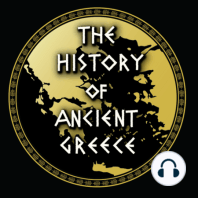18 min listen
058 Classical Temples
ratings:
Length:
46 minutes
Released:
Oct 16, 2017
Format:
Podcast episode
Description
In this episode, we discuss the innovation during the 5th century BC in the realm of temple building (outside of Attica); included are the temple of Aphaia at Aegina, the Temple of Zeus at Olympia, the Temple of Hera II at Poseidonia (Paestum), the Temple of Victory at Himera, the Temple of Apollo at Syracuse, the Valley of the Temples at Akragas, the Temple of Hera at Selinus, and the unfinished temple at Segesta, and the Temple of Apollo at Bassae Show Notes: http://www.thehistoryofancientgreece.com/2017/10/058-classical-temples.html Intro by Ben Jacobs of the Wittenberg to Westphalia: Wars of the Reformation Podcast Website: http://wittenbergtowestphaliapodcast.weebly.com Facebook: https://www.facebook.com/wittenbergtowestphalia Twitter: https://twitter.com/w2wpodcast
Released:
Oct 16, 2017
Format:
Podcast episode
Titles in the series (100)
001 Let There Be Greece!: The first part of this episode is a brief introduction to the podcast; who I am, what my motivation is for doing this, and what I hope to achieve, and in the second part, we describe the geography of Greece (Hellas) and its natural resources Show... by The History of Ancient Greece
